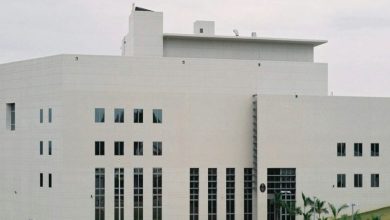Real Estate Moves Ahead of Oil in Nigeria’s Economy After GDP Rebasing
Nigeria’s real estate sector now outpaces crude oil after GDP rebasing reveals new economic structure.
Despite impressive growth figures, rising inflation and hardship persist for millions across the struggling population.
Nigeria’s economy has experienced a significant shift, with the real estate sector now contributing more to the national output than crude oil, following the government’s rebasing of the country’s Gross Domestic Product (GDP). The updated figures offer a new perspective on the structure of Africa’s most populous nation’s economy.
Based on the revised data, Nigeria’s total GDP reached N372.8 trillion in 2024, which equals about $145.3 billion using the current exchange rate. This shows steady growth from the N205.09 trillion recorded in 2019. Over the past five years, the country has witnessed a gradual rise in its economic output, with nominal growth averaging between 3.6 percent and 17.81 percent.
Despite this economic expansion, many Nigerians continue to struggle with rising costs of food and basic goods. As of June 2025, the country’s headline inflation stood at 22.22 percent, while food inflation reached 21.97 percent. These figures suggest that the growing economy has not yet translated into relief for ordinary citizens.
The National Bureau of Statistics conducted the GDP rebasing for six years all at once, covering 2019 to 2024. This process involved updating the methods used to calculate GDP by including new and emerging sectors. As a result, the new data provides a clearer understanding of the contributions made by different industries within the economy.
One of the most notable changes from the rebasing exercise is the shift in the country’s top-performing sectors. Real estate has now surpassed crude oil as the third-largest contributor to GDP. The service sector remains dominant, followed by the industry and agriculture sectors. This indicates a gradual transformation from a resource-based economy toward one driven by services and infrastructure.
Specifically, agriculture’s contribution rose from 22.12 percent before rebasing to 26 percent after the update. The industry sector grew from 21.08 percent to 27.7 percent, while services expanded from 50.22 percent to 53.09 percent. The informal sector also saw a slight increase, contributing 42.5 percent compared to the previous 41 percent. These numbers highlight a more balanced economic structure with growing diversity across sectors.
Although the updated GDP reflects a larger and more dynamic economy, it has not yet improved Nigeria’s position in the African rankings. The country remains in fourth place, behind South Africa, Egypt, and Algeria. According to global financial assessments, these countries still maintain higher overall economic outputs than Nigeria.
Experts believe that while the rebased GDP provides a clearer picture of the economy, it does not automatically lead to improvements in people’s lives. They argue that higher figures on paper do not mean much unless there are policies in place that ensure inclusive development and fair distribution of growth benefits.
Concerns have also been raised about the possible consequences of the rebasing, particularly in terms of taxation. With the economy appearing larger, there could be pressure on the government to raise its tax-to-GDP ratio. However, doing so without addressing the already high cost of living could worsen the hardship faced by the population.



